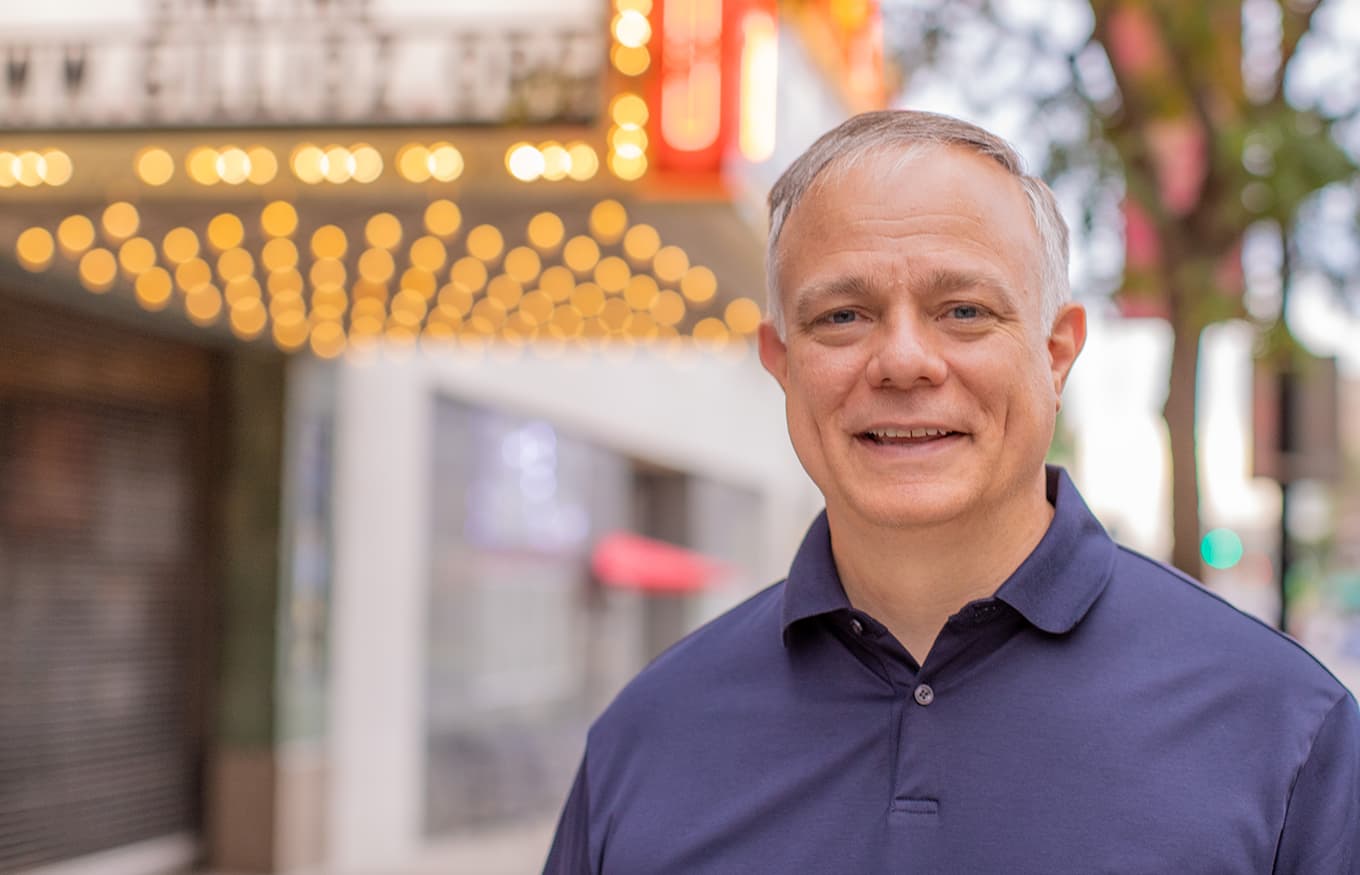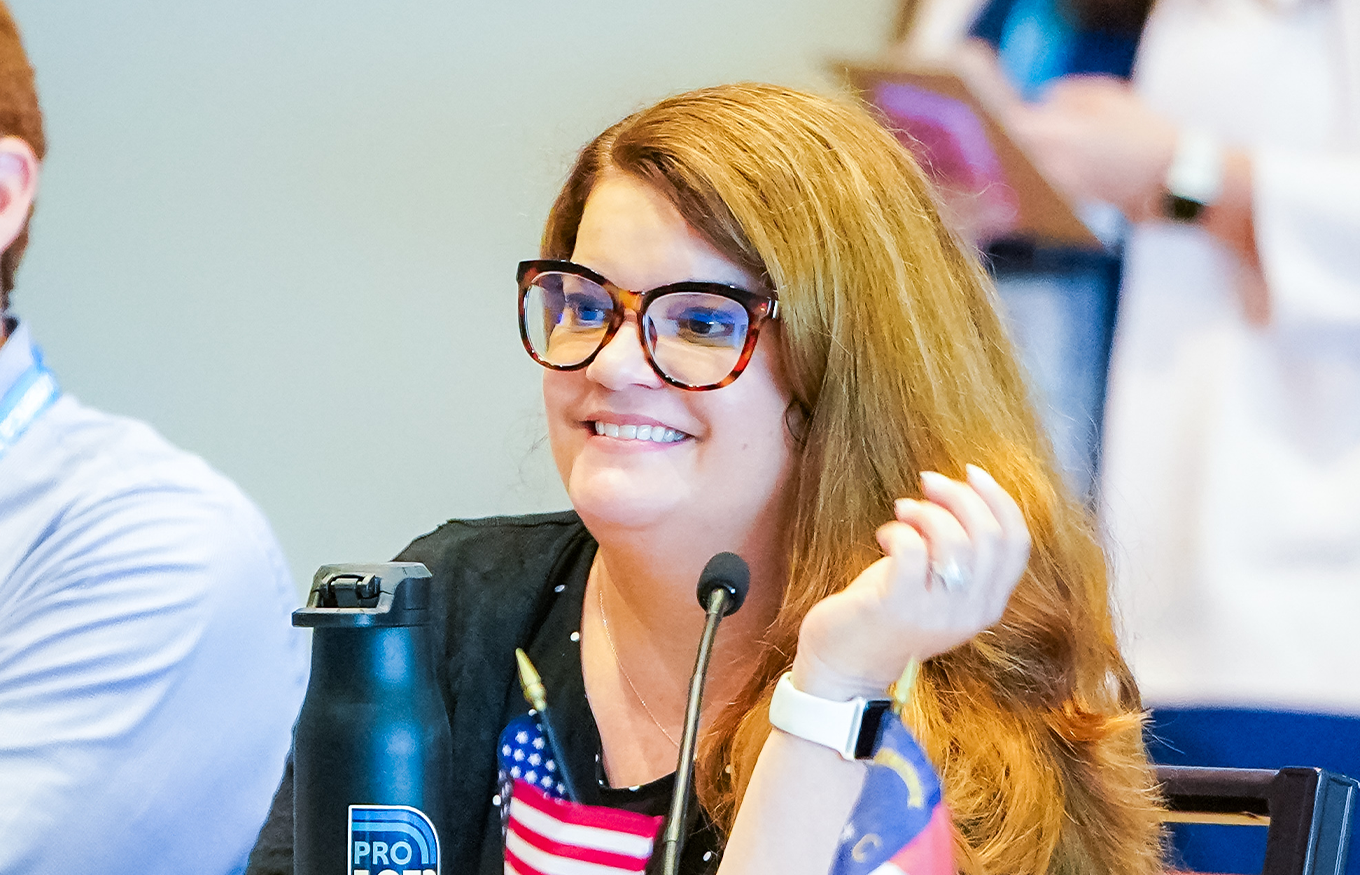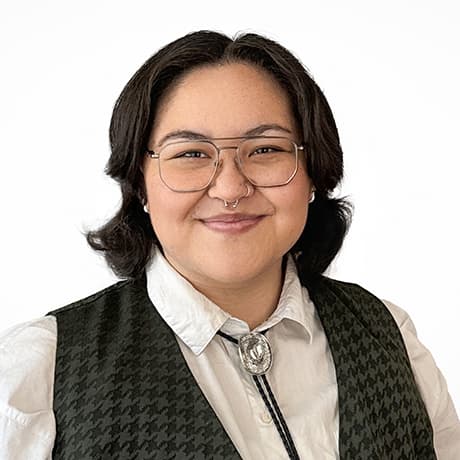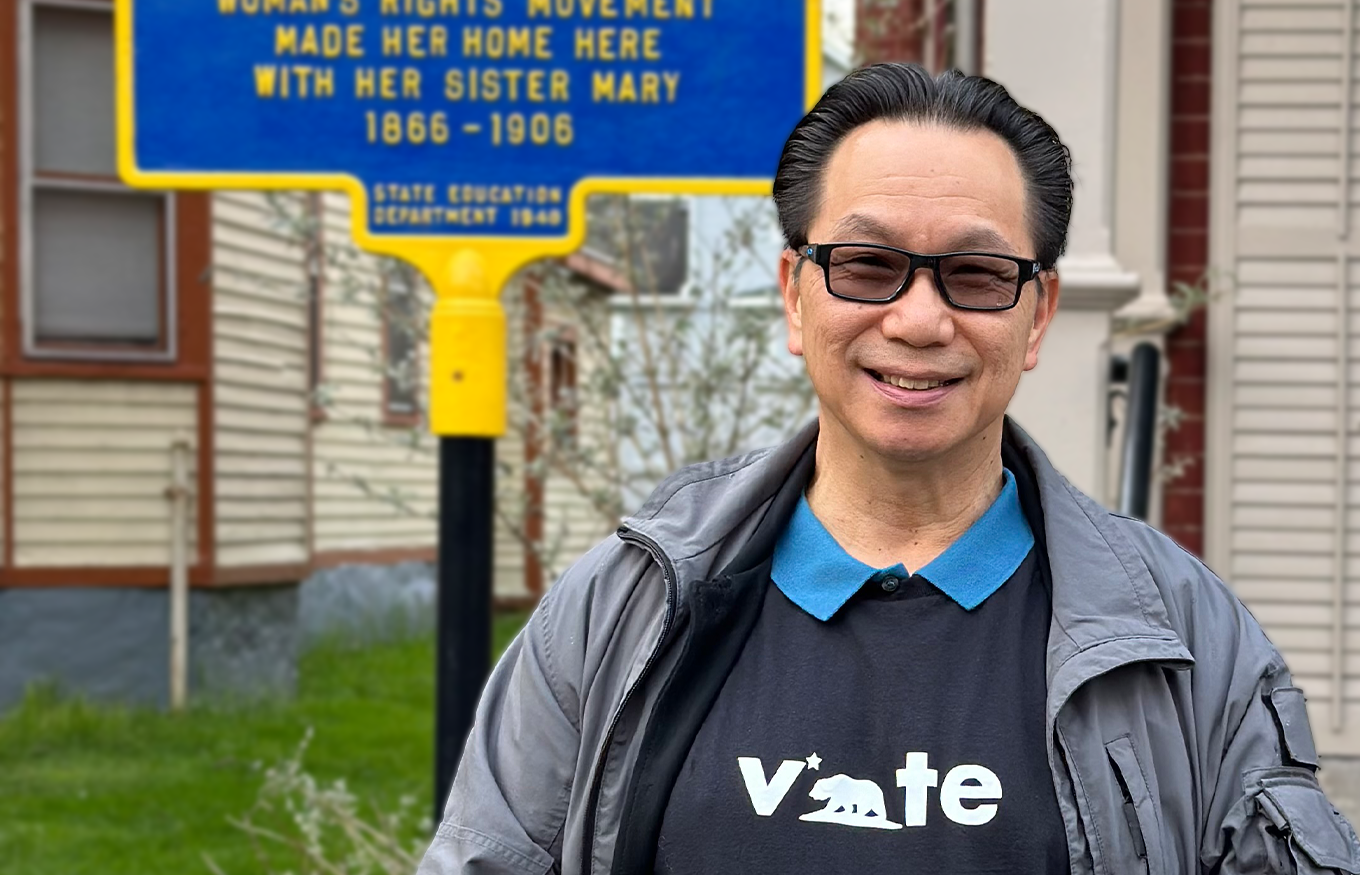Maggie Toulouse Oliver, a registered Democrat who currently serves as New Mexico’s secretary of state, has more than 17 years of experience in the election administration field. She was elected secretary of state in 2016, and before that, she served as the county clerk in New Mexico’s most populous county for roughly a decade.
Sec. Toulouse Oliver began her career in elections working on political campaigns. Later, she worked as the state director of the League of Conservation Voters in New Mexico, before ultimately being appointed, in 2007, as the county clerk in Bernalillo County, which includes Albuquerque. She was later reelected in 2008 and 2012.
As a local election official and as secretary of state, she has championed increasing voter access; running efficient, secure, and fair elections; and bringing more transparency and increased ethical standards to government.
Currently, Sec. Toulouse Oliver serves as an advisory board member for the Election Official Legal Defense Network, a group chaired by election lawyers Benjamin Ginsburg and Bob Bauer. She is also a former president, treasurer, and chair of the elections committee of the National Association of Secretaries of State and is working on a doctoral degree in political science at the University of New Mexico.
Outside of her passion for public service and election administration, Sec. Toulouse Oliver is a self-proclaimed science fiction nerd and former musician, who grew up playing multiple instruments and was the drum major for her high school band.
Since 2023, she has been part of Issue One’s Faces of Democracy campaign advocating for protections for election workers and for regular, predictable, and sufficient federal funding of elections.
This interview has been edited for length and clarity.
Issue One: How did you end up in the election administration profession?
Sec. Toulouse Oliver: I was always very politically engaged. As soon as I got out of high school, I started working on political campaigns, particularly for my U.S. senator at the time, Senator Jeff Bingaman, who was a hero to me growing up. I had a lot of interaction with our election process through that work, registering voters and educating voters about how, where, and when to cast their ballots.
Eventually I served on our county board of voter registration, working for the county clerk’s office. Fast forward to late 2006, my job with the League of Conservation Voters as their state director in New Mexico was wrapping up. Our then-county clerk in Bernalillo County, which is the Albuquerque metro area, was elected secretary of state in the middle of her term as county clerk, and there was a vacancy that the county commission had to fill.
I threw my name in the hat with 12 other people for the appointment to the vacant position, and lo and behold, I was appointed to the position. I have spent the last 17 years of my life now in election administration, 10 as county clerk in Bernalillo County and seven — coming up on eight — as secretary of state.
Turns out it was my calling. I’m a Democrat with a big D, but I’m also a small “d” democrat. I believe in our democracy, and it’s been an incredibly meaningful career.
Issue One: What skills and perspectives have you brought from your role as Bernalillo County clerk into your position as Secretary of State?
Sec. Toulouse Oliver: As county clerk, I had to become an expert in election administration itself, including logistics, project management, election security, system security, IT, and cybersecurity. Now, in my role as secretary of state, I oversee elections at the statewide level, but elections are actually run and managed at the county level.
Having been a county clerk for 10 years and working with my state’s 33 county clerks, I know what their job is and how my job aligns with theirs. I know what tools and resources they need.
Issue One: What part of the election administration story in New Mexico isn’t told enough or isn’t widely understood?
Sec. Toulouse Oliver: You cannot rush accurate election results. We build so many checks and balances into our processes. It takes time. And I think that is not well understood.
Folks really just want their results, and they want them now. If there’s any delay in what they expect, they think it’s because there is a problem with the process or that there’s a decision being made to change an outcome, when in actuality, it’s the reality of trying to make sure things are accurate. There are so many layers of checks and balances built into our system.
A lot of the things that we do are not the sexiest things, right? People aren’t like, “Wow, you’re in the operating room saving a life or a Navy SEAL completing a rescue.” It’s the mundane paint-drying processes that ensure that our elections are accurate and that the outcomes are fair and accurate. Why would most people know all those details?
Issue One: Many people are surprised to learn that the federal government doesn’t routinely fund the costs of running elections. Why do you think the federal government should routinely fund election administration costs?
Sec. Toulouse Oliver: To Congress’s credit, we have received some funding. I don’t want to be the person who has happily spent millions of dollars the last eight years and pretends that Congress hasn’t invested. But what concerns me are two things.
First, there has not been a consistent plan from the federal government to fund cybersecurity in particular and election security more generally. We hold our breath, and wait and see if we’re going to get anything, which makes it hard to really plan out for the future, to build programs for the long term. It’s something that has to happen every year.
Secondly, some Republican members of Congress are really pushing back against additional funding. But this funding goes to protect the election systems for every single voter in this country — Democratic, Republican, independent, or otherwise. This should be a nonpartisan issue.
The federal government needs to continue to provide funding, and preferably consistent funding, moving forward, so we can continue to protect our election systems from foreign nations that are intending to interfere with them.
There are literal nation-states out there deliberately attempting to interfere with our election processes, trying to hack into our systems, and spreading mis- and disinformation. It seems fairly obvious to me that as individual states, we are not equipped to combat that type of activity coming at us from nation states.
Issue One: In recent years, election-related misconceptions, conspiracy theories, and lies have proliferated. How has this impacted your daily work?
Sec. Toulouse Oliver: There have always been urban legends about elections. When I started this work in 2007, there was a lot of concern about the need for government-issued voter ID and voter fraud. That narrative has never quite gone away, but we were able to have civil, intellectual policy disagreements. Over the years, I think that narrative died down through making our processes more transparent, bringing people in, inviting people in, meeting with stakeholders — major political parties and other election-related folks. The post 2016 and especially the post 2020 world have been utterly different.
The amount of mis- and disinformation has just been explosive. You play whack a mole. You knock one myth down, and another pops up.
For example, the “2,000 Mules” movie has now been disavowed by its production company. Pretty much every single point that movie tried to make has been thoroughly debunked. And there have actually been some really embarrassing mistakes that the folks who made the movie have had to own up to. However, even if “2,000 Mules” ends up going the way of the dodo, what’s going to pop up tomorrow? In the months leading up to the election, we’re probably going to see more mis-, dis-, and malinformation than we have ever seen before in a presidential election.
In terms of how it affects my daily life, I used to spend zero to five minutes dealing with it. Now I spend most of my days dealing with it.
Issue One: How do you think those who work outside of election administration should be addressing the issue of election-related misconceptions that issue more broadly?
Sec. Toulouse Oliver: This type of work is really important. Putting a face on election administrators to show that we’re human beings. We’re your neighbor. We’re your friend. Your niece. Your cousin. Your mom. And we do this work because we love it and care about it. We’re all very different in terms of political ideology and personality. But we all basically say the same thing, even if we disagree on politics — which is that our processes are safe, secure, and accurate, and we build them that way intentionally.
The other is pre-bunking and debunking, demystifying the election process, really opening up the curtains, and letting folks come in and see for themselves. I know I and many of my colleagues invite people who really are concerned about integrity to come be a part of the process. We invite them to serve as a watcher at the polls or a poll worker. If you’re concerned about the integrity of our elections, work the polls yourself.
Issue One: Your office has launched a public information campaign to educate voters about the threats presented by deepfakes, what are your biggest concerns about the role that AI will play during elections this year? And how is your office equipping election officials to face these challenges?
Sec. Toulouse Oliver: This technology is another vector for mis-, dis-, and malinformation about elections. It’s important for folks to know that this is another way in which mis- and disinformation may be put out there, and to just be aware of it and look out for it.
In New Mexico, we have created a website with tools, downloads of information on what to look for, and a little quiz. That has been provided to our local election officials. And we have a reporting process so that if folks think that they have seen or heard something that is mis- or disinformation, particularly with generative AI, they are able to report it to us so that we can debunk it.
We can envision scenarios where a deepfake of President Biden or a deepfake of Donald Trump are put out there. I think those types of things are going to get enough eyes on them and be debunked pretty quickly. There already was a deepfake voice recording of President Biden that went out to Democratic voters in the primary in New Hampshire this year that told them not to bother to vote in the primary.
What I’m more concerned about than anything else is things more at the local level. I’m concerned about voters getting a voice recorded message from me saying, “Never mind, the election’s been canceled” or “Your polling place has been closed.”
Issue One: The New Mexico legislature recently passed HB182, which requires political campaigns and candidates to disclose the use of information generated by AI in campaign ads. How helpful will this new policy be as the general election approaches?
Sec. Toulouse Oliver: There are two sides to this effort. One is public education and the other is enforcement.
In New Mexico, we have decided that if you are going to use generative AI content in your political ads, you have to disclose it, similar to how you have to disclose who paid for it. We’ve been effective at enforcing disclosures on who paid for things, and we will enforce this particular law similarly.
In terms of curbing undisclosed use of generative AI, we have set up systems for reporting. Folks will see things out in the wild. We’ll investigate, and if disclosure is necessary, we will seek voluntary compliance.
At the end of the day, the most important thing is that folks are able to know whether or not what they are looking at is real or it’s been generated by a computer image.
We’re not saying you can’t use generative AI. We’re not saying it’s good or bad. But folks do need to know whether something is authentic or not.
Issue One: What’s your elevator pitch for why someone should work as a poll worker this year?
Sec. Toulouse Oliver: At the end of the day, our democracy is run by volunteers, by citizens who show up, either during early voting or one day a year, to do their civic duty and give back, not just to their community, but to this nation of laws. We literally cannot do it without those citizen volunteers.
If you care about the future of our democracy, and if you care about making sure that people get to vote and have their voices heard, you should be a poll worker. If not you, then who?
If you have the time on one day to be able to make sure that our democracy functions, then please come and serve as a poll worker. In today’s day and age, with the challenges that we are facing in the future of our democracy, there is no better time than now to serve as a poll worker.
Issue One: Given all these challenges, what inspires you to stay in this line of work?
Sec. Toulouse Oliver: As I mentioned before, I’m a “small d” democrat. I’m hugely dedicated to our democratic processes and our democracy. And if I don’t do it, who else will, right?
I had to do some deep consideration in 2022 as to whether or not I was going to run for reelection after everything that happened in 2020. I thought deeply about it. What really pushed me to choose to run again and to stay engaged in this work is the fact that it is more important than ever to have nonpartisan, experienced, thoughtful election administrators in this role.
We need to try to run as tight a ship as we can in this election year for our democracy to hold, for our institutions to hold, for this institution of voting to hold. I did not feel like I could abandon the ship at this time.
I’m not willing to allow myself to be harassed and threatened out of my work. And, in fact, to a certain extent, it just makes me double down even further on my commitment to the work.
Issue One: Outside of being passionate about running safe and secure elections, what are your hobbies, or what is a fun fact that most people might not know about you?
Sec. Toulouse Oliver: I am a former musician. I grew up playing multiple instruments. I was the drum major of my high school marching band. I also played piano and was in the jazz band at the University of New Mexico. It’s funny, but a lot of what I learned from being in marching band, and being a drum major, applies to this work. Showing up on time. Practice makes perfect. Working in unity with other people to get a job done.
Issue One: What is your favorite book or movie?
Sec. Toulouse Oliver: I have so many favorite books. I’m a totally prolific reader. My favorite movie is “Aliens” from the 1980s. That’s been my favorite movie for almost 40 years. I love that movie because Ripley is such a strong, smart, and take no you-know-what kind of lady. That movie will never get old to me. I’m a sci-fi nerd.
Issue One: If you had an opportunity to meet with an historical figure, who would that be and why?
Sec. Toulouse Oliver: Catherine the Great. She’s a sort of idol of mine. She was a woman who came into power of her own volition. During her time as the empress of Russia, she really made an investment in education, art, and culture.
There was a bit of expanding of territory that went on that I wouldn’t be such a fan of, but she knew that there was more to people’s lives than just subsistence and survival and that art and culture and education were also important. She made those investments in her country. I think her story is fascinating.
Note: This piece was cross-published with The Fulcrum.







